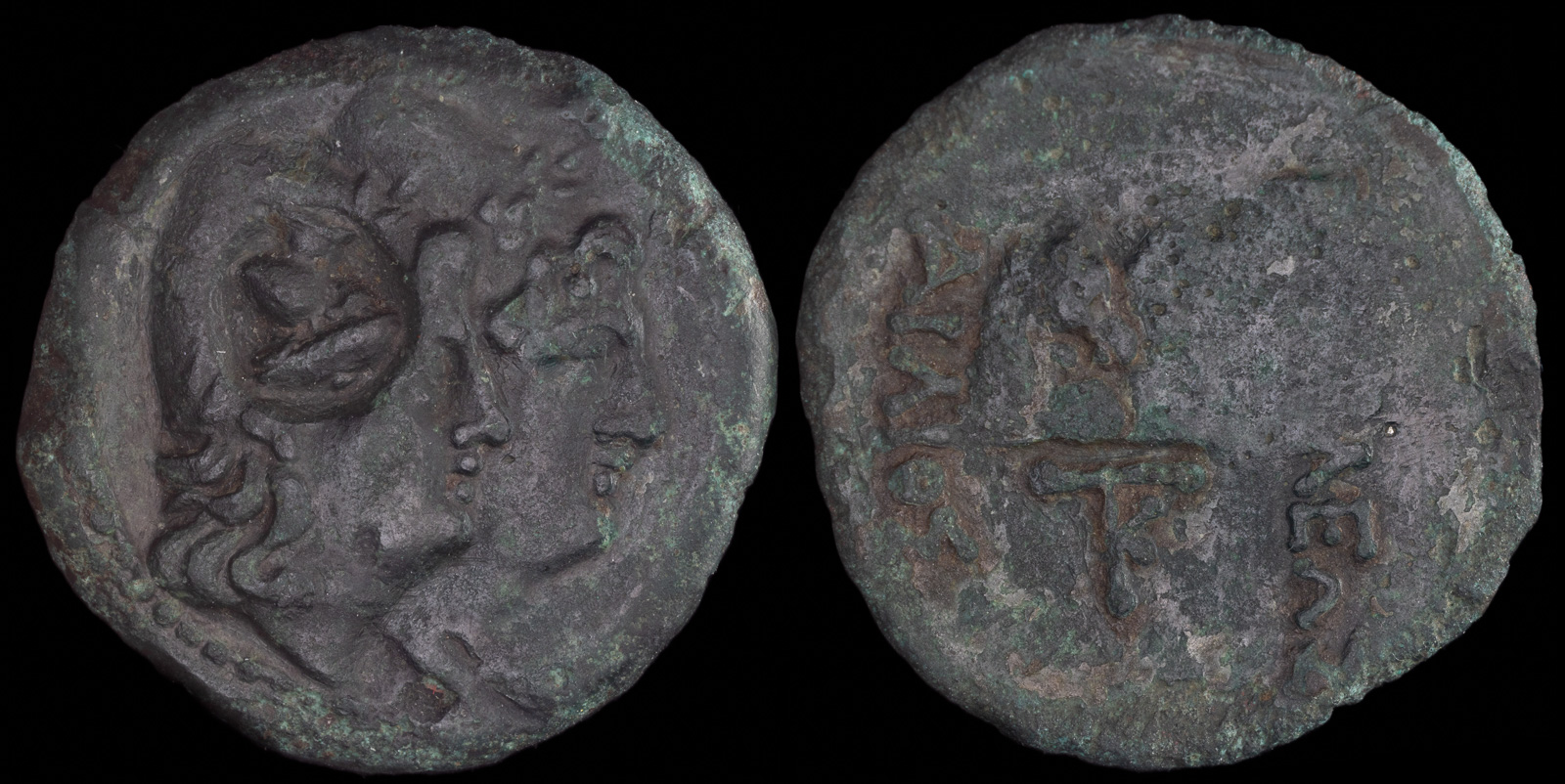Dioscuri
View All Tags
One of the central myths of the Dioscuri involves their close bond and mutual devotion. They were celebrated for their prowess in combat, horsemanship, and athleticism. Together, they participated in significant mythical events, such as the Calydonian Boar Hunt and the expedition of the Argonauts. However, their lives took a tragic turn when a quarrel with their cousins, Idas and Lynceus, over the division of cattle led to a fatal conflict. In the ensuing battle, Castor was killed. Pollux, stricken with grief, begged Zeus to share his immortality with his brother. Zeus granted his wish, allowing the twins to alternate between the realms of the living and the dead. In some versions, they were also transformed into the constellation Gemini, symbolizing their eternal unity in the night sky.
The Dioscuri were venerated as protectors and benefactors of humanity, particularly sailors and warriors. As patrons of seafarers, they were believed to appear during storms as St. Elmo’s fire, a phenomenon that sailors interpreted as a sign of their divine intervention. In Sparta, their homeland, the twins were honored as guardians of the city and symbols of brotherhood and loyalty. Their dual nature, representing both mortal and divine aspects, resonated deeply with the human experience of striving for greatness while grappling with mortality.
In Roman mythology, the Dioscuri, known as Castor and Pollux, were equally revered. They were associated with military success and credited with aiding the Roman army in the Battle of Lake Regillus. Their temple in the Roman Forum stood as a testament to their enduring importance in Roman culture and religion.
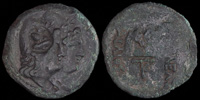
Ailis, 2nd century BCE
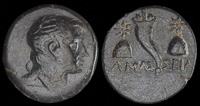
Amaseia, Pontos 120-100 BCE
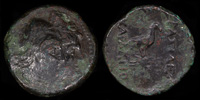
Charaspes 190-188 BCE
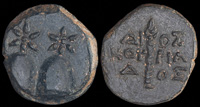
Dioscurias, Colchis 105-90 BCE

Tabai, Karia 1st Century BCE
